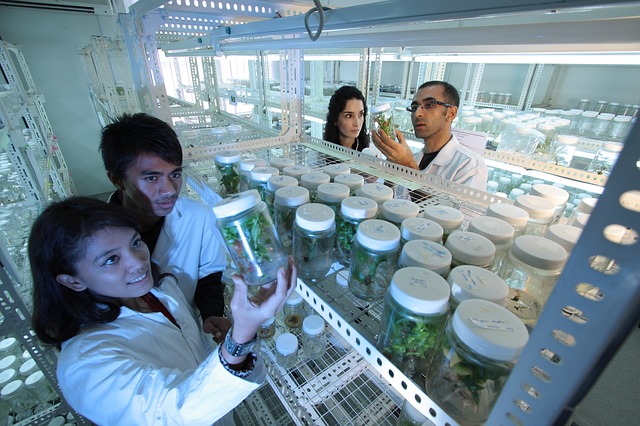Biotechnology has indeed grown rapidly in the last few years; from grave humor jokes likening biotechnology, today it has transformed into a brand new industry spanning the last few decades and in the process, has managed to modify cellular structure of plants, animals and has even helped to identify and develop products, which have been able to extend the human life span. Biotechnology, like everything else has its own pros and cons, but the fact remains is that biotechnology is the future or at least, certain aspects of it.

Positive impact of biotechnology:
Agriculture: One of the issues that the world faced at the end of World War 2 was increased migration to developed countries and dwindling supplies of food stock. Vast agricultural fields were no longer cultivatable thanks to environmental degradation. This resulted in the creation of a study group whose sole purpose was to help nations increase their yield of food crops through scientific methods or to put it succinctly, through biotechnology. So it was decided to splice and create a new brand of crops, one that is more resistant to all pests, diseases etc. This is how GM foods came into being, along with other food companies. And yes, with the help of biotech, we were able to avert a disaster in the making.
Vaccines: Thanks to the advances in Biotechnology, scientists have been able to develop vaccines to combat several health issues, including the H5N1 virus or the bird flu virus. Biotechnology has been on the forefront in identifying key elements and analyzing the progression of a disease; as a result, all the vaccines manufactured today are developed as a result of advancements in Biotechnology.
Early detection and diagnosis: Thanks to biotechnology, doctors can provide their patients with a more effective diagnosis and in short time. As a result, the physician is able to treat his patient more effectively. And this can also be attributed to the various diagnostic tools and advancements in the field of biotechnology.
Negative impact of biotechnology:
Cross species: Biotech firms often cross breed unrelated plant species that do not breed naturally, to create a more resilient species that is resistant to various natural diseases, including blight. While there are various studies being conducted at the moment on the forced breeding between unrelated species and there is yet no conclusive proof to either back up the claim that such genetically modified food crops is unsafe for consumption or to prove otherwise.
Antibiotic resistance: As a result of cross breeding unrelated species, these biotech firms often use antibiotic markers to transfer genes from one particular species to another; the issue though is that these markers are designed to be antibiotic resistant. So in other words, the next time you eat genetically modified crops, the antibiotic resistant markers could interact with bacteria in your gut – essentially leading to health issues. Given the frequency of antibiotic resistant cases being reported from all over the world, the usage of antibiotic resistant gene markers poses a serious risk.
Destruction of natural crops: As a result of introducing genetically modified crops into the environment, the modified crops are slowly replacing the natural ones; moreover these modified crops are designed to be more resilient to most of the natural impediments such as blight and even yeast infestation and as a result, they often replace the natural crops altogether as the later succumbs to various infestations. In fact, a recent study found that the modified crops had spread far and wide from controlled zones despite all the precautions being taken and had even resulted in some of the top food companies like GM being sued.
Transgenic crops: Biotech firms often use some of the latest biotechnological tools to mine viruses for implantation in specific crops, with the purpose of creating transgenic crops. The problem though is that a large proportion of the virus gene remains dormant during the initial stages and gets activated later on. It has been discovered that these dormant genes often activate other dormant viruses and therefore further study should be conducted before any move to commercialize transgenic crops.
These are some of the positive and negative effects of biotechnology, and that’s why we need to carefully assess the same before we start utilizing it for commercial usage.
- Tulip Mania – The Story of One of History’s Worst Financial Bubbles - May 15, 2022
- The True Story of Rapunzel - February 22, 2022
- The Blue Fugates: A Kentucky Family Born with Blue Skin - August 17, 2021
